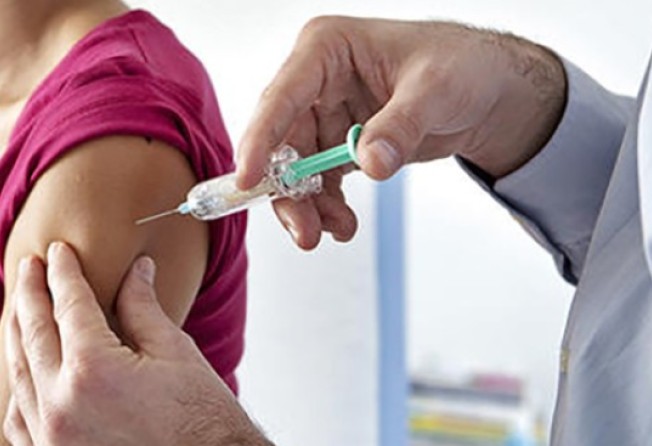More girls to get free HPV shots as Hong Kong expands vaccination scheme
Move comes at midpoint of three-year pilot scheme to combat cervical cancer

More girls from poor families are expected to benefit from a vaccination scheme to prevent one of the deadliest cancers affecting women, with the Community Care Fund spending about HK$98.75 million (US$12.6 million) on the cause.
The fund will now provide free vaccination against HPV – human papillomavirus, which causes cervical cancer – for girls aged nine to 18 from families benefiting from the Working Family Allowance Scheme, which was formerly known as the Low-income Working Family Allowance Scheme, according to an announcement on Tuesday.
The aim is for the target of 31,000 young women to be met as a pilot vaccination scheme, launched in October 2016, has so far only reached 12,300 girls to date.
The more common vaccine types – 4-valent and 9-valent – are effective for about nine years and provide a protection rate of 70 to 90 per cent against cervical cancer.
According to the Family Planning Association of Hong Kong, the vaccination process takes about six months, during which two to three doses are administered.
Civic Party lawmaker Kwok Ka-ki, who is also a doctor, said the lower-than-expected number of girls using the service could be because of a lack of awareness owing to sex being a “taboo” subject among Chinese families.
“The disease is related to sexual activities, which parents might not be too comfortable discussing with their children,” Kwok said.
Another group of girls will also get help from the fund to get the vaccination. These are the 78,000 female pupils who receive half grants under the School Textbook Assistance Scheme (STAS). They will pay a discounted HK$100 (US$13) for each dose of the vaccine.
To enrol in the scheme, those eligible have to book an appointment with youth health care centres managed by the association and provide relevant documents.
Originally, the scheme provided free vaccines only to girls aged nine to 18 benefiting from the Comprehensive Social Security Assistance, and female pupils receiving the full grant under the STAS.
Following the changes, the scheme has been renamed the Cervical Cancer Vaccination Pilot Scheme – with the word “free” dropped from its title.
Medical Association president Gabriel Choi Kin said the extended coverage for girls was a positive change. He added, however, that the government should consider giving the HPV vaccine to all schoolchildren, as boys could also be affected.
“If it is a medical necessity, then it is not a poverty alleviation measure,” Choi said, adding that the cervical cancer vaccination could be handled by the Department of Health instead.
But Kwok said it would be controversial if the scheme was extended to them, as the amount of resources needed could be used to prevent other diseases.
A spokesman of the Department of Health said it currently does not subsidise HPV vaccines, and the whole vaccination course could cost more than HK$3,000 per person at private clinics.
For women in Hong Kong, cervical cancer is the seventh most common cancer, and the eighth most common cause of death.